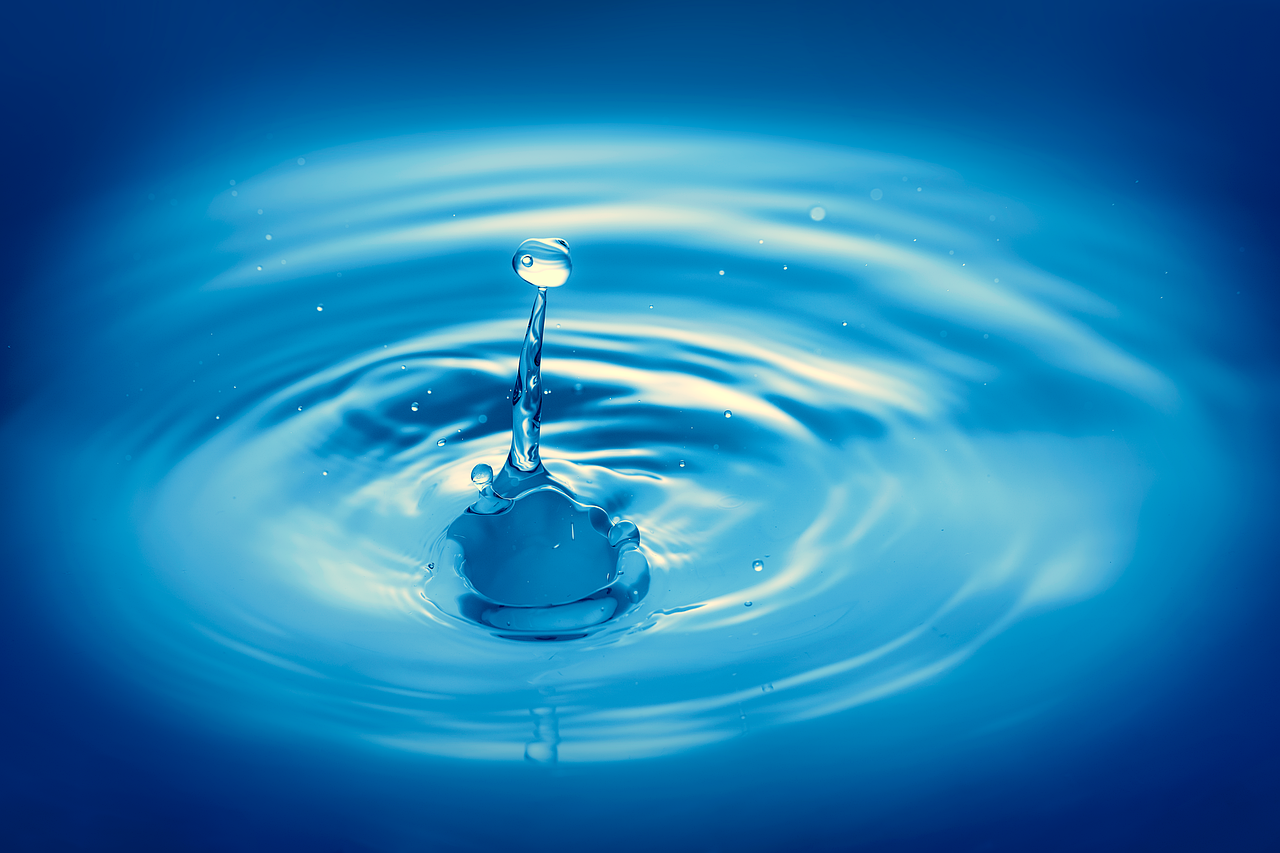This article explores the benefits and drawbacks of water fasting, providing an in-depth analysis of its effects on health, weight loss, and overall well-being.
What is Water Fasting?
Water fasting is a dietary practice that involves the complete abstention from food while consuming only water for a predetermined period. Typically lasting from 24 hours to several days, water fasting is often undertaken for various reasons, including health improvement, weight loss, and spiritual cleansing. Many practitioners believe that this form of fasting can trigger beneficial physiological changes in the body.
Health Benefits of Water Fasting
Water fasting is frequently praised for its potential health benefits, which may include:
- Improved Metabolic Health: Research suggests that fasting can enhance insulin sensitivity and lower blood sugar levels.
- Cellular Repair: Fasting can initiate autophagy, a process where cells remove damaged components, potentially leading to improved cellular function.
- Weight Management: Many individuals turn to water fasting as a method for weight loss, benefiting from reduced calorie intake.
Weight Loss and Water Fasting
A primary motivation for many undertaking water fasting is weight loss. By significantly reducing caloric intake, water fasting can lead to a calorie deficit, which is essential for weight reduction. During fasting, the body shifts to burning fat for energy, which can result in noticeable fat loss over time.
Detoxification Effects
Proponents of water fasting often claim that it aids in detoxifying the body. While the body has its own natural detoxification systems, such as the liver and kidneys, fasting may enhance these processes by allowing the body to focus on cleansing and repairing itself without the burden of digestion.
Potential Risks of Water Fasting
Despite its potential benefits, water fasting is not without risks. Individuals should be aware of the following:
- Nutrient Deficiencies: Extended fasting can lead to a lack of essential vitamins and minerals, which may affect overall health.
- Health Complications: Prolonged fasting can cause serious health issues, particularly for individuals with pre-existing conditions.
Physical Side Effects
Common physical side effects during water fasting may include:
- Fatigue: Many individuals experience low energy levels due to reduced caloric intake.
- Dizziness: Lack of nutrients and hydration can lead to feelings of lightheadedness.
- Electrolyte Imbalances: Prolonged water fasting can disrupt the balance of electrolytes, which are crucial for bodily functions.
Mental and Emotional Effects
The mental and emotional impacts of fasting can be significant. Some individuals report heightened irritability or mood swings, while others may experience improved mental clarity. It is essential to monitor one’s emotional state during fasting, as the practice can affect cognitive function and overall mental health.
Who Should Avoid Water Fasting?
Water fasting is not suitable for everyone. Individuals with certain medical conditions, such as diabetes, eating disorders, or those who are pregnant or breastfeeding, should avoid this practice. Consulting with a healthcare professional before beginning any fasting regimen is advisable.
How to Prepare for a Water Fast
Preparation is key for a successful water fast. Here are some tips:
- Setting Realistic Goals: Establish achievable expectations to enhance your fasting experience.
- Hydration Strategies: Ensure proper hydration before and during the fast to minimize side effects.
Alternatives to Water Fasting
For those seeking similar benefits without the risks associated with water fasting, alternatives like intermittent fasting and juice fasting can provide effective solutions while still promoting health and wellness.

What is Water Fasting?
Water fasting is a dietary practice that entails abstaining from all food and consuming only water for a designated period. This method of fasting has gained popularity for its potential health benefits and simplicity. Generally, water fasting can last anywhere from 24 hours to several days, depending on individual goals and health conditions. During this time, individuals refrain from any caloric intake, relying solely on water to sustain them.
One of the primary motivations behind water fasting is the desire for detoxification. Proponents believe that this practice allows the body to eliminate toxins and reset its metabolic processes. However, it is essential to approach water fasting with caution, as the duration and method can significantly impact health outcomes.
Common practices associated with water fasting include:
- Preparation: Prior to starting a water fast, individuals often prepare by gradually reducing their food intake, which can help ease the transition.
- Hydration: Staying adequately hydrated is crucial. While water is the only substance consumed, some individuals may incorporate herbal teas or electrolyte solutions, although this can vary based on personal preferences and fasting goals.
- Duration: The length of the fast varies. Short-term fasts (1-3 days) are more common among beginners, while experienced fasters may extend their fasting periods.
During a water fast, the body undergoes several physiological changes. Initially, the body uses stored glucose for energy, which is followed by a shift to fat stores as glycogen depletes. This metabolic switch can lead to weight loss and other benefits, such as improved insulin sensitivity and enhanced cellular repair mechanisms.
However, it’s important to note that water fasting is not suitable for everyone. Individuals with certain medical conditions, such as diabetes or eating disorders, should consult healthcare professionals before attempting this practice. Moreover, prolonged fasting can lead to potential risks, including nutrient deficiencies and electrolyte imbalances.
In summary, water fasting is a practice that involves consuming only water for a specified duration, often aimed at detoxification and weight loss. While it can offer various health benefits, proper preparation and awareness of potential risks are crucial for a safe and effective fasting experience.

Health Benefits of Water Fasting
Water fasting has gained popularity in recent years, often being hailed for its numerous health benefits. This practice involves abstaining from all food and consuming only water for a specified duration. While it may sound extreme, many individuals report experiencing profound health improvements. In this section, we will explore the various health benefits associated with water fasting, including enhanced metabolic health, improved cellular repair mechanisms, and more.
One of the most significant advantages of water fasting is its potential to enhance metabolic health. Research indicates that fasting can lead to improved insulin sensitivity, which is crucial for regulating blood sugar levels. By reducing insulin resistance, individuals may lower their risk of developing type 2 diabetes. Additionally, water fasting can promote fat oxidation, allowing the body to utilize stored fat as an energy source more efficiently.
Water fasting may also trigger a process known as autophagy, where cells remove damaged components and regenerate themselves. This mechanism is essential for maintaining cellular health and has been linked to longevity. By allowing the body to focus on repair rather than digestion, water fasting can enhance the body’s natural healing processes.
Many individuals report experiencing enhanced mental clarity during water fasting. The absence of food can lead to increased production of brain-derived neurotrophic factor (BDNF), a protein that supports neuron growth and function. This boost in BDNF may improve cognitive function, concentration, and overall mental well-being.
Water fasting is often associated with weight loss, as it creates a significant calorie deficit. During the fasting period, the body begins to burn fat for energy, leading to a decrease in body weight. This weight loss can be particularly beneficial for individuals struggling with obesity or weight-related health issues. However, it is essential to approach fasting with caution and ensure that it is part of a balanced lifestyle.
Proponents of water fasting claim that it aids in detoxification, allowing the body to eliminate toxins and waste products. While the scientific basis for detoxification through fasting is still under investigation, some studies suggest that fasting can enhance liver function and promote the elimination of harmful substances.
Water fasting may also contribute to improved heart health. Some research indicates that fasting can lower blood pressure, reduce cholesterol levels, and decrease inflammation—all of which are critical factors in cardiovascular health. By promoting a healthier heart, water fasting may reduce the risk of heart disease and related complications.
Emerging studies suggest that water fasting might have implications for longevity. The processes triggered during fasting, such as autophagy and improved metabolic function, may contribute to a longer, healthier life. While more research is needed in this area, the preliminary findings are promising.
In summary, water fasting presents a range of potential health benefits, from improved metabolic health to enhanced cellular repair mechanisms. While it is essential to consider individual circumstances and consult with healthcare professionals before embarking on a fasting journey, the advantages associated with water fasting are worth exploring for those seeking to improve their overall well-being.
Weight Loss and Water Fasting
One of the most significant motivations for individuals to engage in water fasting is the pursuit of weight loss. This method of fasting primarily involves consuming only water for a defined period, which can lead to a substantial reduction in caloric intake. By understanding the mechanics behind water fasting, one can appreciate how it facilitates calorie deficits and promotes fat loss.
During a water fast, the body enters a state of ketosis, where it begins to utilize fat stores for energy instead of carbohydrates. This metabolic shift is crucial for weight loss, as it encourages the body to burn stored fat, leading to a decrease in overall body weight. Additionally, the absence of food intake during this period significantly reduces caloric consumption, which is essential for creating a calorie deficit.
- Caloric Deficit: Water fasting inherently leads to a caloric deficit, as individuals are not consuming any food. This deficit is a fundamental principle of weight loss; when the body expends more energy than it takes in, it begins to use stored fat for fuel.
- Increased Fat Oxidation: Research indicates that fasting can enhance the body’s ability to oxidize fat. This means that during a water fast, the body becomes more efficient at breaking down fat for energy, which can accelerate weight loss.
- Hormonal Changes: Water fasting can lead to hormonal adjustments that further facilitate weight loss. For instance, levels of insulin drop significantly, making it easier for the body to access fat stores. Additionally, fasting can increase levels of norepinephrine, which boosts metabolism and enhances fat burning.
Moreover, many individuals report a decrease in appetite after undertaking a water fast. This can be attributed to hormonal changes and the psychological effects of fasting. Once the fast concludes, many find that their cravings for unhealthy foods diminish, allowing for better food choices in the long term.
However, it is essential to approach water fasting with caution. While it can lead to effective weight loss, it is not suitable for everyone. Factors such as individual health conditions, lifestyle, and personal goals should be considered before embarking on such a regimen. Consulting with a healthcare professional is advisable to ensure that fasting aligns with one’s health objectives.
In summary, water fasting can be an effective method for achieving weight loss through calorie deficits and increased fat oxidation. By understanding the physiological processes involved, individuals can make informed decisions about whether this fasting method aligns with their health and wellness goals.
Detoxification Effects
Water fasting has gained popularity among health enthusiasts, with many proponents claiming it serves as a powerful method for detoxification. This section delves into the scientific basis behind these claims and explores the potential health effects associated with water fasting.
Detoxification refers to the body’s natural process of eliminating toxins and harmful substances. Advocates of water fasting argue that by abstaining from food and consuming only water, the body can focus its energy on cleansing itself. This claim is often supported by the idea that fasting allows for enhanced metabolic processes, enabling the body to eliminate waste products more effectively.
Research indicates that during fasting, the body undergoes several physiological changes. For instance, insulin levels drop significantly, which may help facilitate fat breakdown and release stored toxins. Ketosis, a metabolic state that occurs during prolonged fasting, may also play a role in detoxification. In this state, the body utilizes fat for energy instead of carbohydrates, potentially reducing the accumulation of harmful substances.
| Physiological Changes During Water Fasting | Potential Benefits |
|---|---|
| Reduced Insulin Levels | Facilitates fat breakdown and toxin release |
| Increased Autophagy | Cellular repair and removal of damaged cells |
| Enhanced Ketosis | Utilizes fat for energy, reducing harmful substance accumulation |
Moreover, proponents of water fasting often cite the phenomenon of autophagy, a process where the body cleans out damaged cells and regenerates new ones. This cellular repair mechanism is believed to be triggered during fasting, leading to improved health outcomes. Some studies suggest that autophagy can help reduce inflammation and support overall immune function, further emphasizing the potential detoxification benefits of water fasting.
However, while the detoxification claims associated with water fasting are intriguing, it’s important to approach them with caution. The body possesses its own sophisticated detoxification systems, primarily through the liver and kidneys. These organs work continuously to filter and eliminate toxins from the body, regardless of fasting status. Therefore, the extent to which water fasting enhances these processes remains a topic of ongoing research.
Additionally, individuals considering water fasting should be aware of potential risks, including nutrient deficiencies and electrolyte imbalances. Prolonged fasting without proper guidance can lead to adverse health effects, which may outweigh the perceived benefits of detoxification. It is crucial to consult with a healthcare professional before embarking on a water fast, especially for those with pre-existing health conditions.
In summary, while water fasting may offer some detoxification benefits through physiological changes such as reduced insulin levels and increased autophagy, it is essential to weigh these potential advantages against the risks involved. As the scientific community continues to explore the effects of fasting on detoxification, individuals should remain informed and cautious in their approach to this practice.

Potential Risks of Water Fasting
While water fasting is often promoted for its health benefits, it is essential to recognize that it also comes with a range of potential risks. This section aims to highlight the dangers associated with prolonged fasting and the complications that may arise.
- Nutrient Deficiencies: One of the most significant risks of water fasting is the potential for nutrient deficiencies. When individuals abstain from food, they forfeit essential vitamins, minerals, and macronutrients necessary for optimal bodily function. Prolonged fasting can lead to deficiencies in critical nutrients such as vitamin B12, iron, and calcium, which can have serious health implications.
- Electrolyte Imbalances: Fasting can disrupt the balance of electrolytes in the body, which are vital for functions such as muscle contractions and nerve signaling. Low levels of sodium, potassium, and magnesium can result in severe complications, including heart arrhythmias and muscle weakness.
- Physical Side Effects: Many individuals experience a range of physical side effects during water fasting. Common complaints include fatigue, dizziness, headaches, and weakness. These symptoms can be particularly concerning for those with underlying health issues.
- Mental and Emotional Effects: The mental toll of fasting should not be underestimated. Water fasting can lead to mood swings, irritability, and decreased cognitive function. Individuals may find it challenging to concentrate, which can affect daily activities and overall quality of life.
- Potential Health Complications: For some individuals, especially those with pre-existing health conditions such as diabetes or heart disease, water fasting can pose serious health risks. It can exacerbate existing conditions and lead to complications that require medical attention.
- Refeeding Syndrome: After a prolonged fast, the process of reintroducing food must be approached cautiously. Rapidly consuming food after a fast can lead to refeeding syndrome, a dangerous condition characterized by severe electrolyte shifts that can be life-threatening.
Given these risks, it is crucial for individuals considering water fasting to consult with a healthcare professional. This ensures that they are aware of their individual health status and any potential complications that may arise during the fasting period.
In summary, while water fasting may offer certain health benefits, the associated risks are significant. Careful consideration and professional guidance are essential to ensure that fasting is done safely and effectively.
Physical Side Effects
Water fasting, while often pursued for its potential health benefits, can lead to various that individuals should be aware of. These side effects can significantly impact the fasting experience and overall well-being. Below, we explore some of the most common issues encountered during a water fast.
- Fatigue: One of the most frequently reported side effects of water fasting is fatigue. As the body transitions into a state of fasting, it relies on stored energy sources, which can lead to feelings of tiredness and lethargy. This is particularly pronounced in the initial days of fasting, as the body adjusts to the lack of caloric intake.
- Dizziness: Dizziness is another common complaint among those who engage in water fasting. This sensation can be attributed to a combination of factors, including low blood sugar levels and dehydration. It is crucial to stay adequately hydrated during a fast to mitigate these feelings.
- Electrolyte Imbalances: Prolonged water fasting can lead to imbalances in essential electrolytes such as sodium, potassium, and magnesium. These minerals are vital for various bodily functions, including muscle contractions and nerve signaling. An imbalance can result in symptoms such as muscle cramps, irregular heartbeat, and even confusion.
- Headaches: Many individuals report experiencing headaches during the fasting period. This can stem from dehydration, caffeine withdrawal, or changes in blood sugar levels. Staying hydrated and managing caffeine intake prior to fasting can help alleviate this issue.
- Nausea: Nausea can occur, especially for those new to fasting. The lack of food intake can lead to an upset stomach, which may be exacerbated by the body’s detoxification processes. Gradually easing into fasting, such as through intermittent fasting, may help reduce this effect.
- Digestive Changes: Water fasting can also lead to changes in digestive patterns. Some individuals may experience constipation or diarrhea as the body adjusts to the absence of food. It is important to monitor these changes and consult a healthcare professional if they become severe.
While these physical side effects can be concerning, they are often temporary and may subside as the body adapts to fasting. However, it is essential for individuals considering water fasting to be aware of these potential issues and to listen to their bodies. If severe symptoms arise or persist, seeking medical advice is crucial to ensure safety and health during the fasting process.
In summary, while water fasting can offer various health benefits, it is accompanied by potential physical side effects that should not be overlooked. Understanding these effects can help individuals make informed decisions about their fasting practices and prepare adequately for the experience.
Mental and Emotional Effects
The mental and emotional toll of fasting can be significant, affecting individuals in various ways. While many people undertake water fasting for its physical benefits, it is essential to recognize that the psychological and emotional aspects can be just as impactful. This section delves into how water fasting influences mood, cognitive function, and overall mental health.
Firstly, mood fluctuations are common during water fasting. As the body adjusts to a lack of food, individuals may experience irritability, anxiety, or even depressive symptoms. These changes can be attributed to hormonal shifts, particularly in the levels of serotonin and cortisol, which are crucial for regulating mood. A study published in the Journal of Clinical Psychology found that fasting can lead to increased feelings of stress and emotional instability, especially in the initial days.
Additionally, cognitive function may also take a hit during prolonged fasting. Many people report difficulties in concentrating and decreased mental clarity. This can be linked to the brain’s reliance on glucose for energy. During fasting, the body shifts to burning fat for fuel, which can temporarily affect cognitive performance. Research in the Neuroscience Letters indicates that while some individuals may experience enhanced focus after adapting to fasting, others might struggle with memory and attention during the transition phase.
Furthermore, the psychological aspect of fasting can lead to a sense of isolation or social withdrawal. Many social activities revolve around food, and abstaining from eating can create feelings of loneliness or alienation. This emotional burden can exacerbate feelings of anxiety and depression, particularly for those who already struggle with mental health issues. A survey conducted by the American Psychological Association found that individuals who fasted reported higher levels of social anxiety, especially in group settings.
On a more positive note, some individuals report a sense of accomplishment and empowerment from completing a water fast. This feeling can contribute to improved self-esteem and a better overall outlook on life. The act of fasting can serve as a form of discipline, leading to a greater sense of control over one’s body and health. However, it is crucial to balance this with awareness of the potential negative emotional effects.
It is also important to consider the role of mindfulness during the fasting process. Practicing mindfulness and meditation can help mitigate some of the negative emotional effects associated with fasting. Engaging in these practices can enhance self-awareness and emotional regulation, making the fasting experience more manageable. Research published in the Mindfulness Journal supports the idea that mindfulness can improve emotional resilience during challenging periods.
In conclusion, while water fasting may offer various health benefits, it is vital to remain aware of its potential . Understanding these impacts can help individuals prepare better for the experience and implement strategies to cope with the challenges that may arise. Seeking support from mental health professionals or connecting with others who have undergone similar experiences can also be beneficial in navigating the emotional landscape of fasting.

Who Should Avoid Water Fasting?
Water fasting can be a beneficial practice for some individuals, but it is not suitable for everyone. Understanding who should avoid water fasting is crucial for ensuring safety and well-being. This section highlights specific groups of people, particularly those with certain medical conditions, who should refrain from this practice.
Individuals with Diabetes: People managing diabetes, especially those on insulin or other blood sugar-lowering medications, should avoid water fasting. Fasting can lead to dangerous fluctuations in blood sugar levels, which may result in hypoglycemia (low blood sugar) or hyperglycemia (high blood sugar). It is essential for diabetics to maintain a consistent intake of food to regulate their blood sugar levels effectively.
Pregnant and Nursing Women: Pregnant or breastfeeding women have increased nutritional needs to support their health and that of their baby. Water fasting can deprive them of essential nutrients, potentially harming fetal development or milk production. It is vital for these individuals to consult healthcare providers before considering any fasting regimen.
Individuals with Eating Disorders: Those with a history of eating disorders, such as anorexia or bulimia, should avoid water fasting. The restrictive nature of fasting may trigger unhealthy behaviors or exacerbate existing conditions. Seeking professional guidance is crucial for individuals in this category.
People with Kidney Issues: Individuals suffering from kidney disease or dysfunction should steer clear of water fasting. The kidneys play a vital role in filtering waste and balancing fluids in the body. Fasting can lead to dehydration and place additional stress on the kidneys, potentially worsening their condition.
Cardiovascular Patients: Those with heart conditions or hypertension should consult their healthcare provider before engaging in water fasting. Fasting can lead to dehydration, which may strain the heart and affect blood pressure levels. It is essential for individuals with cardiovascular issues to maintain a balanced diet and hydration.
Older Adults: Aging individuals often have different nutritional requirements, and fasting can lead to nutrient deficiencies. Older adults may also be more susceptible to the side effects of fasting, such as dizziness and fatigue, which can increase the risk of falls and other accidents.
Individuals on Certain Medications: People taking medications that require food intake, such as those for thyroid conditions or certain antidepressants, should avoid water fasting. Skipping meals can interfere with medication efficacy and lead to adverse side effects.
Conclusion: It is essential to recognize that although water fasting has potential benefits, it is not a one-size-fits-all solution. Consulting with healthcare professionals before embarking on any fasting regimen is crucial, especially for individuals in the aforementioned categories. By prioritizing safety and well-being, individuals can make informed decisions about their health practices.

How to Prepare for a Water Fast
Preparation is crucial for a successful water fast. Engaging in a water fast can be a transformative experience, but it requires careful planning and mental readiness. This section outlines practical tips on how to prepare both physically and mentally for the fasting period.
First and foremost, physical preparation is essential. Gradually reducing food intake in the days leading up to the fast can help your body adjust. Start by eliminating processed foods, sugars, and heavy meals. Instead, focus on a diet rich in fruits, vegetables, and whole grains. This approach not only prepares your body for fasting but also helps in minimizing withdrawal symptoms.
- Hydration: Increase your water intake before the fast begins. Staying well-hydrated helps your body cope with the lack of food during the fasting period.
- Nutrition: Ensure you consume a balanced diet leading up to the fast. Include foods high in fiber and healthy fats to provide sustained energy.
- Rest: Prioritize sleep and rest in the days before your fast. A well-rested body can handle the stresses of fasting more effectively.
Equally important is mental preparation. Fasting can be as much a mental challenge as a physical one, so it’s vital to set your mindset for success.
Here are some strategies to enhance your mental readiness:1. Set clear intentions for your fast. Understand why you are undertaking this process.2. Visualize the benefits you hope to achieve, such as improved health or increased clarity.3. Prepare for challenges by acknowledging potential cravings or emotional triggers.
Additionally, consider support systems. Inform friends or family about your fasting plans, as their understanding can provide emotional support during challenging moments. Joining online communities or forums can also offer encouragement and shared experiences.
Lastly, listen to your body. Each individual’s experience with fasting is unique, and it’s essential to pay attention to how you feel throughout the process. If at any point you feel unwell or overly fatigued, it’s crucial to reassess your approach and prioritize your health.
By taking the time to prepare both physically and mentally, you can enhance your chances of having a successful and rewarding water fast experience.
Setting Realistic Goals
Setting realistic goals is essential for anyone considering a water fast. By establishing achievable expectations, individuals can enhance their fasting experience and maintain motivation throughout the process. This section explores various strategies to help you set practical goals, ensuring a more rewarding water fasting journey.
Understanding Your Objectives
Before embarking on a water fast, it’s important to clarify your motivations. Are you fasting for health benefits, weight loss, detoxification, or spiritual reasons? Understanding your objectives will help you tailor your goals accordingly. For instance, if your primary aim is to lose weight, you might focus on a specific number of pounds or body measurements.
Breaking Down Goals into Smaller Steps
Instead of overwhelming yourself with a broad goal like “I want to fast for 7 days,” consider breaking it down into smaller, more manageable steps. For example:
- Start with a 24-hour fast to gauge your body’s response.
- Gradually increase the duration of your fasts, aiming for 48 hours in the following weeks.
- Set daily hydration goals to ensure you are drinking enough water throughout your fast.
Monitoring Your Progress
Keeping track of your progress is crucial. Maintain a journal to document your experiences, feelings, and any physical changes you observe during the fast. This practice not only helps you stay accountable but also allows you to reflect on your journey and adjust your goals as needed.
Setting Timeframes
Establishing a timeframe for your goals can provide structure and motivation. For example, if you plan to complete a week-long fast, set daily check-in points to evaluate your progress. This approach helps you stay focused and committed, while also allowing for adjustments based on your body’s feedback.
Being Flexible and Kind to Yourself
It’s essential to remain flexible with your goals. Water fasting can be unpredictable, and your body may respond differently than expected. If you find that your initial goals are too ambitious, don’t hesitate to modify them. Remember, self-compassion is key; fasting should not be a source of stress or anxiety.
Seeking Support
Consider joining a community or finding a buddy who shares similar fasting goals. Sharing your experiences and challenges can provide motivation and encouragement. Support from others can make the fasting experience more enjoyable and less isolating.
Conclusion
In summary, setting realistic goals for your water fast is a vital component of a successful experience. By understanding your motivations, breaking down your goals, monitoring progress, and remaining flexible, you can create a fulfilling fasting journey. Remember, the aim is not just to achieve a specific outcome but also to foster a deeper connection with your body and its needs.
Hydration Strategies
Maintaining adequate hydration during a water fast is crucial for ensuring both safety and effectiveness. Without proper hydration, the body can experience a range of negative effects, including fatigue, dizziness, and impaired cognitive function. This section outlines effective strategies to help you stay well-hydrated throughout your fasting period.
- Prioritize Water Intake: Aim to consume a sufficient amount of water daily. The general recommendation is to drink at least 2 to 3 liters of water, depending on your body weight and activity level. Consider carrying a water bottle to remind yourself to drink regularly.
- Monitor Electrolyte Levels: While water fasting, your body may lose essential electrolytes. To counteract this, consider adding a pinch of sea salt to your water or using electrolyte supplements that are free from calories. This can help maintain the balance of sodium, potassium, and magnesium in your body.
- Incorporate Herbal Teas: Unsweetened herbal teas can be a great addition to your hydration strategy. They not only provide hydration but can also offer additional health benefits without breaking your fast. Opt for caffeine-free options like chamomile or peppermint to avoid dehydration.
- Listen to Your Body: Pay attention to your body’s signals. If you feel thirsty, it’s essential to drink water immediately. Thirst is an early indicator of dehydration, so don’t wait until you feel parched.
- Set Reminders: Use technology to your advantage. Set reminders on your phone or use hydration tracking apps to encourage regular water intake. This can be particularly helpful during the initial days of fasting when your body is adjusting.
- Choose Room Temperature or Warm Water: Some individuals find it easier to drink water that is at room temperature or slightly warm. This can be more soothing on the stomach and encourage higher fluid intake.
- Avoid Diuretics: During a water fast, it’s best to avoid diuretic beverages such as coffee and alcohol, as they can lead to increased fluid loss. Instead, focus on hydrating fluids that support your fasting goals.
By implementing these hydration strategies, you can enhance your fasting experience and mitigate potential side effects. Remember that staying hydrated not only supports your physical well-being but also contributes to a more positive mental state during your water fast.

Alternatives to Water Fasting
For individuals interested in reaping the benefits of fasting without the potential risks associated with water fasting, several alternatives are available. These methods not only provide health benefits but also cater to different lifestyles and preferences. This section delves into two popular fasting alternatives: intermittent fasting and juice fasting.
Intermittent fasting (IF) is a dietary strategy that alternates between periods of eating and fasting. Unlike traditional fasting, which may require abstaining from food for extended periods, intermittent fasting typically involves shorter fasting windows. Common approaches include:
- 16/8 Method: Fast for 16 hours and eat during an 8-hour window each day.
- 5:2 Diet: Consume a normal diet for five days a week and restrict calorie intake to about 500-600 calories on two non-consecutive days.
- Alternate Day Fasting: Alternate between days of normal eating and days of fasting or significantly reduced calorie intake.
This method is not only easier for many to adhere to but also offers numerous health benefits, including improved metabolic health, weight loss, and enhanced brain function.
Research indicates that intermittent fasting can lead to significant health improvements. Some of the notable benefits include:
- Weight Loss: By reducing the eating window, many find it easier to consume fewer calories, leading to weight loss.
- Improved Insulin Sensitivity: IF may enhance insulin sensitivity, reducing the risk of type 2 diabetes.
- Cellular Repair Processes: Fasting triggers autophagy, a process where cells remove damaged components, promoting overall cellular health.
Another alternative is juice fasting, which involves consuming only fruit and vegetable juices for a certain period. This method is often seen as a gentle detoxification process, allowing the body to cleanse itself while still providing essential nutrients.
Juice fasting can last anywhere from a day to several days, depending on individual goals and health conditions. Unlike water fasting, juice fasting provides calories and nutrients, making it a more sustainable option for many.
Juice fasting can offer various health benefits, including:
- Increased Nutrient Intake: Juices are rich in vitamins, minerals, and antioxidants, which can boost overall health.
- Hydration: Juices can help maintain hydration levels, which is crucial during any fasting period.
- Improved Digestion: The absence of solid food can give the digestive system a break, potentially improving digestive health.
When deciding between intermittent fasting and juice fasting, consider the following:
- Your Health Goals: Define what you aim to achieve—weight loss, detoxification, or improved health.
- Your Lifestyle: Choose a method that fits seamlessly into your daily routine to enhance adherence.
- Consult a Professional: Always consult with a healthcare provider or a nutritionist, especially if you have underlying health conditions.
In summary, both intermittent fasting and juice fasting present viable alternatives to water fasting, each with unique benefits. By understanding these options, individuals can make informed choices that align with their health goals and lifestyles.
Frequently Asked Questions
- What is water fasting?
Water fasting is the practice of not consuming any food and only drinking water for a set period. It’s often done for health benefits, weight loss, or detoxification.
- How long can you safely water fast?
The duration of a water fast can vary, but many people fast for 24 to 72 hours. However, it’s crucial to consult a healthcare professional before attempting prolonged fasting.
- What are the health benefits of water fasting?
Water fasting may lead to improved metabolic health, promote cellular repair, and aid in weight loss. Many believe it can also help detoxify the body.
- Are there any risks associated with water fasting?
Yes, water fasting can pose risks such as nutrient deficiencies, fatigue, dizziness, and electrolyte imbalances, especially if done for extended periods without supervision.
- Who should avoid water fasting?
Individuals with certain medical conditions, pregnant or breastfeeding women, and those with a history of eating disorders should avoid water fasting unless advised by a healthcare provider.
- How can I prepare for a water fast?
Preparation involves setting realistic goals, ensuring proper hydration before starting, and mentally preparing for the fasting period to enhance your experience.
- What are some alternatives to water fasting?
If water fasting seems too extreme, consider alternatives like intermittent fasting or juice fasting, which can provide similar benefits with fewer risks.












